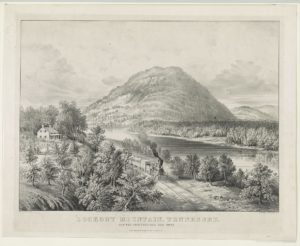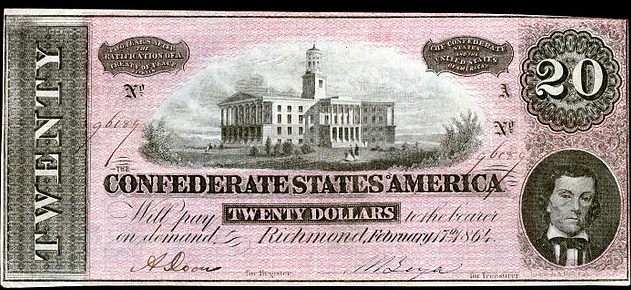On July 18, 1866 Tennessee became the third United state (and first ex-Confederate state) to ratify the Fourteenth Amendment to the United States Constitution. On July 24, 1866 both houses of the United States Congress began accepting representatives from Tennessee. In his response to the “Joint resolution, restoring Tennessee to her relations in the Union” President Johnson said he was happy that Tennessee was back in Congress, but he was careful to state that he did not acquiesce with any right of Congress to impose prerequisites (like agreeing to the Fourteenth Amendment) on the readmission of the rebel states. President Johnson believed all the southern states were fit for readmission with the possible exception of Texas.
The two new senators from Tennessee were Joseph S. Fowler and David T. Patterson, Andrew Johnson’s son-in-law. The front page of The New-York Times from July 26, 1866 said that there was a 100 gun salute in Washington, D.C. on the evening of the 24th to celebrate Tennessee’s readmission and restoration “was at the insistence of the friends of the Administration.”
The following is an 1896 summary of Tennessee from The Struggle between President Johnson and Congress over Reconstruction by Charles Ernest Chadsey (1896; pages 85-86):
The reconstruction legislation of the first session of the 39th Congress closed with the restoration of Tennessee to the Union. Other measures were under consideration, but were not acted upon until the following session. The attitude of Tennessee, since her re-organization under the provisions of the proclamation of 1863, had been the most consistent of any of the Southern States. From March 3, 1862, until March 3, 1865, Johnson, as military governor, had preserved law and order to a great extent. The formal reorganization of the State was undertaken by a convention of the loyal citizens convened January 8, 1865, acting upon the recommendation and personal approval of Johnson. This convention proposed the amendments to the constitution of the State, made necessary by the changes brought about by the war, and they were adopted by the loyal voters of the State on February 22. On March 4 a governor and legislature were elected, who assumed their duties on April 3. The work of the legislature was characterized by an apparent eagerness to do all that should be done by a State loyal to the Union.
The popular ratification of the amendments to the Constitution distinguished the action of Tennessee from that of the other Southern States, and this fact, united to her uniformly consistent attitude, formed the ground for the recommendation of the Committee on Reconstruction that this State should be restored to her former rights and privileges. This recommendation, in the form of a joint resolution, was reported from the committee by Mr. Bingham on March 5, but no action was taken until July 20. Tennessee’s prompt action in ratifying the 14th Amendment was taken as good evidence that her government was thoroughly reconstructed, and the State entitled to representation. Accordingly a substitute resolution, noting these facts, was introduced and passed, the Senate amending and passing it three days later. This declared Tennessee to be restored to her former relations to the Union, and entitled to representation in Congress, but the preamble was used as a vehicle for the assertion of the sole power of Congress to restore State governments. President Johnson, while approving the resolution, explained in his message that his approval was “not to be construed as an acknowledgment of the right of Congress to pass laws preliminary to the admission of duly qualified representatives from any of the States,” nor as committing him “to all the statements made in the preamble.”



